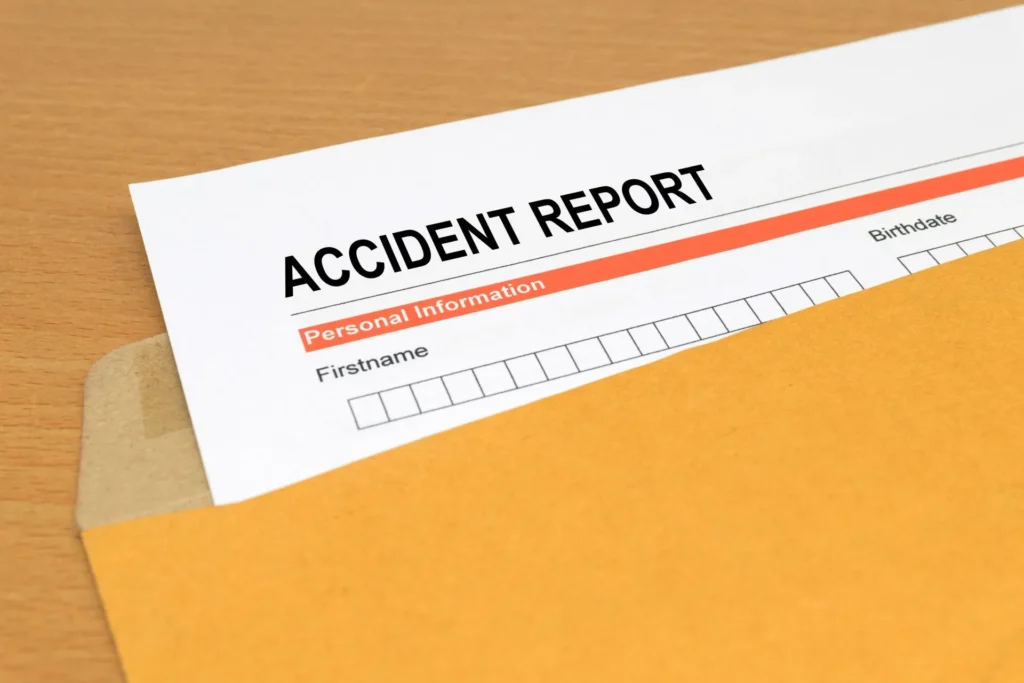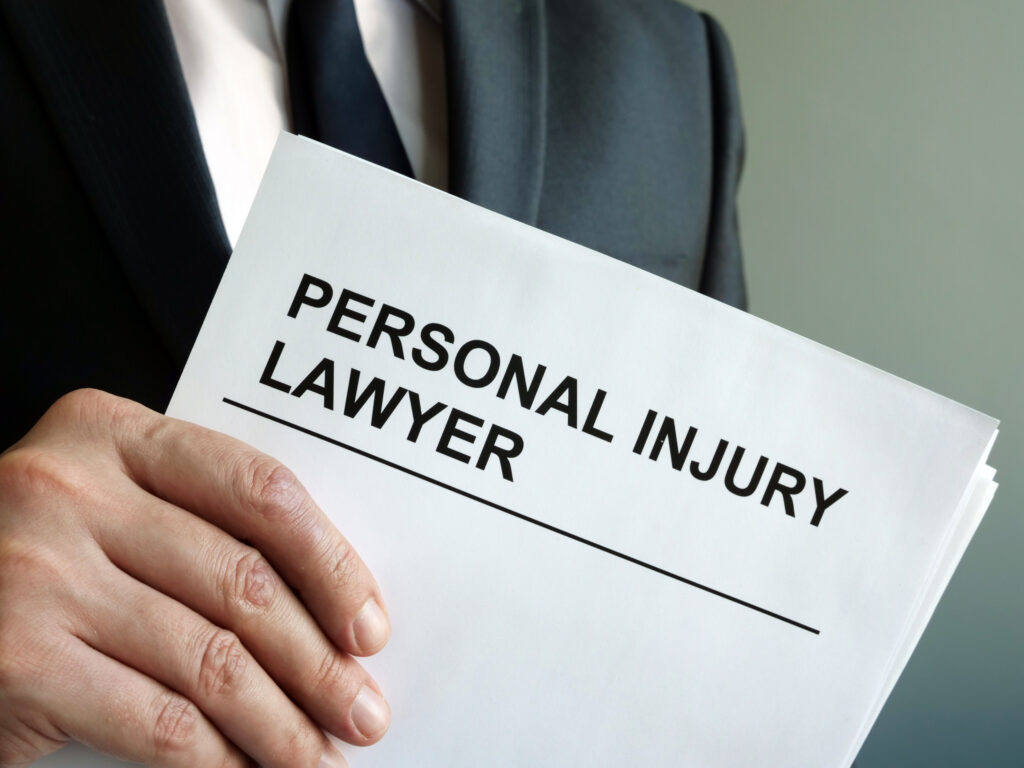Empowering You on the Road to Recovery: Navigating the Path to Compensation for Personal Injuries
KEY TAKEAWAYS:
- Gather evidence and document the accident scene thoroughly.
- Identify liable parties and understand insurance coverage.
- Evaluate the extent of damages and losses carefully.
- Hire an experienced personal injury attorney for guidance.
- Negotiate with insurance companies effectively.
- Prepare for trial if settlement talks fail.
- Consider mediation and alternative dispute resolution.
- Focus on securing accident protection for the future.
- Seek professional legal advice for long-term protection.
Personal injuries resulting from accidents can be life-altering, leaving individuals dealing with physical, emotional, and financial burdens. When faced with such challenging circumstances, knowing the steps to pursue compensation and seek justice becomes crucial. Understanding the key aspects of injury claims and the importance of legal representation, individuals can take proactive measures to protect their rights and recover the compensation they rightfully deserve.
Accidents can happen at any time and in various settings, from car collisions on busy highways to slip and fall incidents in public places. While seeking compensation might seem daunting, knowing the right actions to take can make a significant difference. This article aims to empower readers with essential information to evaluate the situation after an accident, identify liable parties, gather evidence, and initiate the claims process. Additionally, it sheds light on the importance of seeking legal assistance, guiding readers through negotiation tactics with insurance companies and, if necessary, the litigation process.
Understanding personal injury claims and the pursuit of compensation is essential for victims and their families. Equipping oneself with knowledge, they can take informed steps towards securing a fair settlement for their injuries and losses. Whether it’s assessing damages, filing a claim, negotiating with insurers, or considering future protection, this article serves as a comprehensive resource to support individuals in their pursuit of justice and financial recovery after an accident.
Assessing the Accident and Injuries

Accidents can unexpectedly disrupt lives, leaving victims dealing with injuries, financial strain, and emotional distress. When faced with such situations, it is vital for individuals to understand the crucial steps involved in pursuing compensation for their injuries. By gathering evidence, identifying liable parties, and evaluating the extent of damages and losses, individuals can build a strong foundation for their claims and increase the chances of receiving fair compensation.
Gathering Evidence and Documenting the Scene
After an accident occurs, the immediate priority is to gather evidence and document the scene. This includes taking photographs of the accident site, the vehicles involved (in the case of a car accident), and any visible injuries sustained. Eyewitness statements can also play a vital role in supporting the claim. Collecting contact information from witnesses and preserving any physical evidence is crucial to building a strong case.
Identifying Liable Parties and Insurance Coverage
Identifying the parties responsible for the accident is essential to determine liability. In some cases, it might be clear-cut, such as when another driver causes a car accident due to reckless driving. However, liability can be more complex in other situations, such as slip and fall incidents on someone else’s property. Understanding the potential liable parties and their insurance coverage is vital for seeking compensation.
Evaluating the Extent of Damages and Losses
Assessing the extent of damages and losses is a critical step in the personal injury claims process. This includes both economic damages, such as medical bills, property damage, and lost wages, as well as non-economic damages, such as pain and suffering or emotional distress. Victims should keep track of all expenses related to the accident to ensure they are adequately compensated for their losses.
By carefully assessing the accident and injuries, victims can begin building a strong foundation for their personal injury claims. Proper documentation, identifying liable parties, and evaluating damages are all crucial elements that contribute to the success of a claim. With this information, individuals can proceed with greater confidence and seek the compensation they deserve to rebuild their lives after an accident.
Filing a Personal Injury Claim
When dealing with the aftermath of a personal injury, understanding the process of filing a claim is essential for seeking rightful compensation. From enlisting the expertise of a seasoned personal injury attorney to initiating the claims process with insurance companies and adhering to statutes of limitations and deadlines, this guide aims to equip individuals with the knowledge needed to navigate the complexities of filing a personal injury claim successfully.
Hiring an Experienced Personal Injury Attorney
One of the most crucial decisions individuals can make when filing a personal injury claim is hiring an experienced personal injury attorney. These legal professionals possess the knowledge and expertise necessary to navigate the complexities of personal injury law. An attorney can analyze the specifics of the case, gather evidence, negotiate with insurance companies, and, if necessary, represent the victim in court. With the guidance of a skilled attorney, individuals can improve the likelihood of securing a fair settlement for their injuries and losses.
Initiating the Claims Process with Insurance Companies
After selecting an attorney, the next step involves initiating the claims process with insurance companies. This process begins by submitting a demand letter detailing the accident’s circumstances, injuries sustained, and the requested compensation. Insurance adjusters will then review the claim and either approve, deny, or offer a settlement. Navigating this process can be challenging, which is why having an attorney can be invaluable. They can skillfully negotiate with insurance companies and ensure victims are not taken advantage of during this critical stage.
Complying with Statutes of Limitations and Deadlines
Filing a personal injury claim is time-sensitive, as it must comply with statutes of limitations and deadlines imposed by state laws. Statutes of limitations vary depending on the jurisdiction and the type of claim. Failing to file within the designated timeframe may result in the loss of the right to seek compensation. An experienced personal injury attorney can help victims understand and adhere to these critical deadlines, ensuring their claims are filed promptly and efficiently.
By understanding the steps involved in filing a personal injury claim, individuals can proactively protect their rights and pursue the compensation they deserve. Hiring a skilled attorney, initiating the claims process with insurance companies, and complying with legal deadlines are all essential aspects of this process. With this knowledge, victims can approach their personal injury claims with confidence and work towards achieving a fair resolution for their injuries and losses.
Negotiating with Insurance Companies
In the aftermath of a personal injury, negotiating with insurance companies is a crucial aspect of seeking fair compensation for injuries and damages. This phase of the personal injury claims journey revolves around navigating the complexities of settlement negotiations with insurance providers. Comprehending the tactics employed by insurers, methods for calculating fair compensation, and essential preparation strategies for successful settlement negotiations; individuals can confidently engage with insurance companies and work towards obtaining the compensation they rightfully deserve.
Understanding the Tactics Employed by Insurers

Insurance companies have a vested interest in minimizing their payout on personal injury claims. To achieve this, they often employ various tactics designed to weaken the claimant’s position. Common tactics may include delaying responses, disputing the severity of injuries, or attempting to shift blame onto the victim. Understanding these tactics is essential for claimants to navigate negotiations effectively and avoid falling victim to unfair practices. Consulting with an experienced personal injury attorney can be instrumental in countering these tactics, as they are well-versed in insurance company strategies and can safeguard the claimant’s interests.
Calculating Fair Compensation for Injuries and Damages
Determining the appropriate amount of compensation for injuries and damages can be a complex process. Fair compensation should account for not only immediate medical expenses but also long-term care, lost wages, pain and suffering, and emotional distress. Insurance adjusters often try to undervalue claims by offering low settlement amounts. However, understanding the true worth of the claim is crucial in negotiations. Personal injury attorneys use various methods to calculate fair compensation, such as consulting with medical experts, considering future medical expenses, and assessing the impact of injuries on the victim’s quality of life. Armed with accurate calculations, claimants can enter negotiations with a clear understanding of what constitutes fair compensation.
Preparing for Settlement Negotiations
Effective preparation is the key to successful settlement negotiations. Claimants should gather all relevant documentation, including medical records, bills, police reports, and witness statements. Presenting a comprehensive case strengthens the claimant’s position and provides evidence to support their demands. Additionally, claimants should anticipate potential counterarguments from insurance adjusters and have responses ready. Working closely with a personal injury attorney during this phase can be advantageous, as they can provide guidance on building a compelling case and offer valuable insights into the negotiation process. Moreover, attorneys can advocate on behalf of the claimant and negotiate with insurance companies to secure a fair settlement.
Thus, negotiating with insurance companies is a critical step in the personal injury claims process. Understanding the tactics used by insurers, calculating fair compensation, and preparing meticulously for settlement negotiations are essential aspects of this phase. By educating themselves on these elements and enlisting the help of experienced personal injury attorneys, claimants can approach negotiations with confidence and increase their chances of obtaining the compensation they rightfully deserve.
Litigation and Court Proceedings
In some instances, despite attempts to negotiate, personal injury claims may not reach a satisfactory settlement. When settlement talks fail to yield a fair resolution, litigation and court proceedings become the next course of action. This phase of the personal injury claims journey involves preparing for trial, presenting evidence, and navigating the court process. Understanding the intricacies of this phase empowers individuals to pursue their claims diligently and seek the justice they deserve.
When attempts at negotiating a settlement prove unsuccessful, preparing for trial becomes imperative. Claimants should consult with their personal injury attorneys to strategize the best approach for presenting their case in court. During this phase, attorneys may conduct further investigations, gather additional evidence, and analyze the strengths and weaknesses of the case. Additionally, attorneys and claimants may engage in pre-trial motions, which are legal requests made to the court to address specific issues before the trial commences. Adequate preparation is vital to maximize the chances of a favorable outcome in court and achieve the compensation necessary for recovery.
Central to the success of any personal injury trial is the presentation of compelling evidence. Attorneys play a pivotal role in presenting evidence that substantiates the claimant’s allegations and supports their case. Evidence can include medical records, expert testimonies, eyewitness accounts, photographs, and other relevant documentation. Building a strong case requires meticulous organization and a clear narrative that effectively communicates the extent of the injuries and the liability of the responsible party. Well-prepared and cohesive evidence can sway the court in favor of the claimant and increase the likelihood of a favorable verdict.
Navigating the court process can be daunting, especially for those unfamiliar with legal proceedings. Understanding the sequence of events and the roles of various participants is essential. Once the trial begins, both parties present their case through opening statements, direct examinations, cross-examinations, and closing arguments. The judge or jury then deliberates to reach a verdict. Claimants should be prepared for the duration of the trial, which can vary based on the complexity of the case. Throughout the process, claimants may also need to adhere to court rules and procedures, ensuring that their case proceeds smoothly and efficiently.
When settlement talks fail, litigation and court proceedings become necessary to seek compensation for personal injuries. Adequate preparation for trial, effective presentation of evidence, and a comprehensive understanding of court processes are pivotal to the success of this phase. Working closely with their personal injury attorneys and familiarizing themselves with the legal procedures, claimants can navigate the complexities of litigation with confidence, striving for a favorable verdict that reflects their rightful compensation and promotes justice in their personal injury claim.
Resolving the Personal Injury Claim

In the journey of pursuing a personal injury claim, resolution becomes the ultimate goal for claimants seeking compensation for their injuries and losses. As the litigation phase concludes, the focus shifts towards resolving the personal injury claim through various means. This fifth phase involves reaching a settlement agreement, finalizing the compensation and release of claims, and exploring alternative dispute resolution methods.
Reaching a settlement agreement is often the most common and preferred method of resolving a personal injury claim. During this phase, both parties engage in negotiations to determine a fair and acceptable compensation amount. Personal injury attorneys play a crucial role in advocating for the claimant’s best interests and ensuring that the settlement adequately covers medical expenses, lost wages, pain, and suffering, among other damages. A successful settlement brings closure to the claim, avoiding the uncertainties and costs associated with trial proceedings. However, reaching an agreeable settlement may require careful consideration of the strength of the evidence and potential legal arguments, which is where the expertise of personal injury attorneys becomes invaluable.
Once a settlement agreement is reached, the process of finalizing the compensation and releasing claims begins. This phase involves preparing the necessary documentation to formalize the settlement, including a release or waiver that extinguishes any further claims against the liable party. Claimants should thoroughly review the terms of the settlement and consult with their attorneys to ensure all aspects of the agreement align with their best interests. Finalizing the compensation is a critical step in the resolution of the personal injury claim, providing claimants with the financial relief they need to move forward after an accident or injury.
In some cases, reaching a settlement through traditional negotiations may prove challenging. As an alternative, claimants may explore mediation and alternative dispute resolution methods. Mediation involves a neutral third party, the mediator, who facilitates discussions between the parties to find a resolution. This process can be less adversarial and more cooperative, promoting open communication and creative problem-solving. Additionally, arbitration is another option, where a neutral third party acts as an arbitrator to render a decision. Exploring alternative dispute resolution methods can potentially save time and money while fostering a sense of empowerment and control for claimants over the outcome of their cases.
Resolving a personal injury claim involves reaching a settlement agreement that fairly compensates claimants for their injuries and losses. Reaching an agreeable settlement requires effective negotiation and the expertise of personal injury attorneys. Once the settlement is reached, the process of finalizing the compensation and releasing claims ensures the claimant’s financial security. For more complex cases, considering mediation and alternative dispute resolution methods can offer viable alternatives to traditional litigation. The resolution phase of a personal injury claim brings closure and relief to claimants, allowing them to move forward with confidence and newfound stability after an accident or injury.
Securing Accident Protection for the Future
Accident protection goes beyond addressing immediate concerns; it involves proactive measures for future safety and financial security. By taking steps to prevent accidents, individuals can minimize risks in their everyday lives. Understanding insurance options and coverage is crucial in mitigating the potential financial consequences of accidents. Seeking professional legal advice can provide a layer of long-term protection, especially in complex accident scenarios. By integrating these strategies, individuals can empower themselves to face uncertainties with confidence, ensuring a safer and more secure future.
Taking Steps to Prevent Future Accidents
When it comes to accident protection, proactive measures can make all the difference in safeguarding oneself from potential harm. Individuals can take various steps to reduce the risk of future accidents. This may include practicing safe driving habits, obeying traffic rules, and avoiding distractions while on the road. In the workplace, adhering to safety guidelines and wearing appropriate protective gear can minimize the likelihood of accidents. Proper maintenance and inspection of household items, such as smoke detectors, fire extinguishers, and electrical appliances, can also contribute to accident prevention. By adopting a safety-conscious mindset and being aware of potential hazards, individuals can significantly reduce the likelihood of accidents in their daily lives.
Understanding Insurance Options and Coverage
Securing adequate insurance coverage is paramount in protecting oneself from the financial burden of accidents. Understanding the different insurance options available is crucial to ensure comprehensive protection. For instance, automobile insurance can provide coverage in the event of a car accident, while health insurance can help cover medical expenses resulting from injuries. Homeowners or renters insurance may offer protection in case of accidents occurring within the property. Additionally, umbrella insurance policies can provide extra coverage beyond the limits of primary insurance policies. Familiarizing oneself with the terms and conditions of insurance policies is essential to ensure that coverage aligns with individual needs and potential risks.
Seeking Professional Legal Advice for Long-term Protection
In complex accident scenarios or cases involving severe injuries, seeking professional legal advice is essential for long-term protection. Personal injury attorneys can provide valuable guidance on navigating the legal landscape and understanding one’s rights and entitlements. Consulting with an attorney can help individuals assess the potential liability of other parties involved in the accident and explore avenues for pursuing compensation for damages. Additionally, legal professionals can offer insights into any statutes of limitations that may apply to the specific case, ensuring that individuals take timely action to protect their rights.
In conclusion, individuals pursuing personal injury claims should be aware of the critical steps and considerations involved in seeking compensation for injuries. Ultimately, personal injury claims require careful attention to detail, perseverance, and legal acumen. Armed with the knowledge provided in this article, individuals can confidently navigate the personal injury claims process, ensuring their rights are protected and their path to compensation is well-guided.




